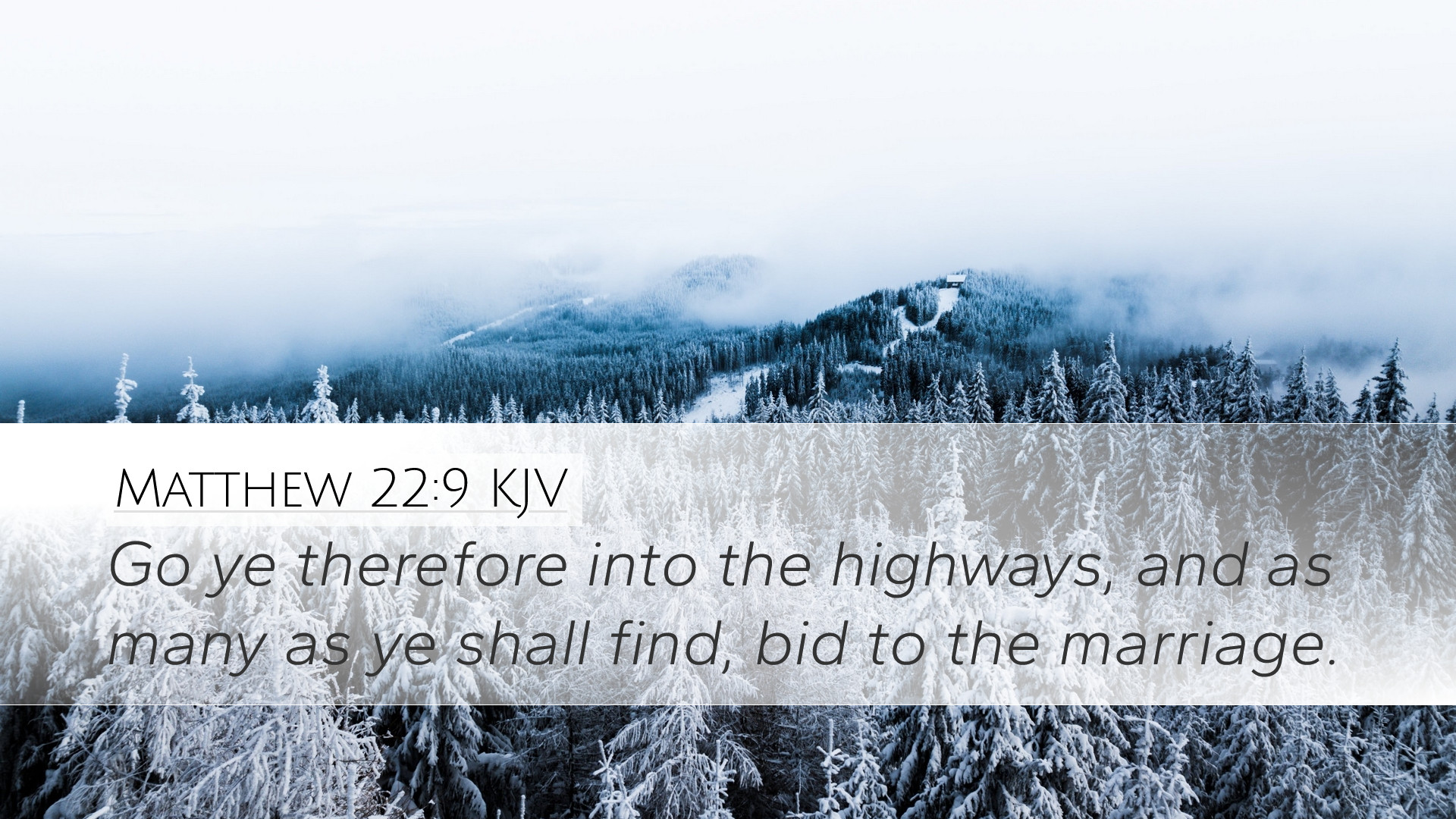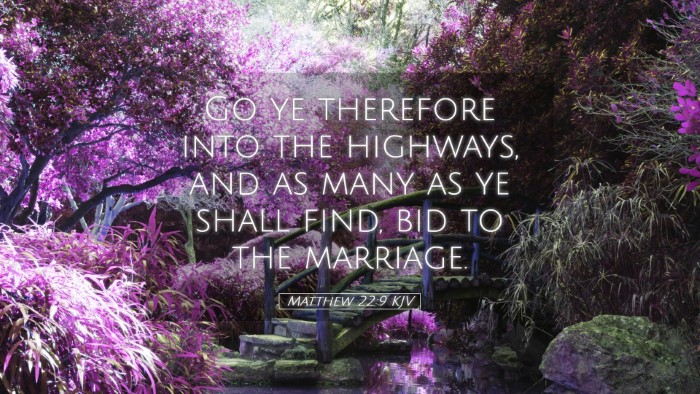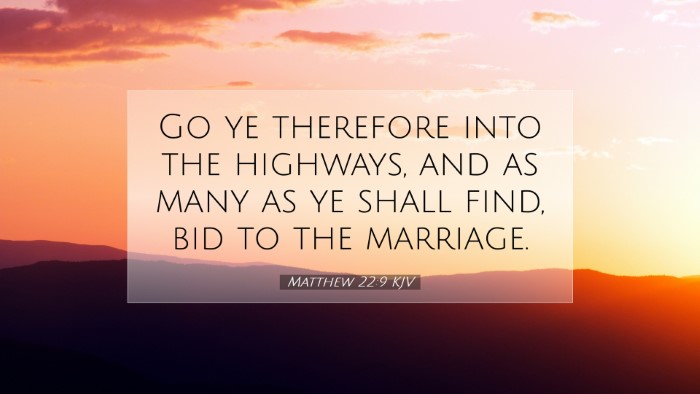Commentary on Matthew 22:9
Matthew 22:9 states: "Go ye therefore into the highways, and as many as ye shall find, bid to the marriage." This verse is pivotal in understanding the nature of God's invitation and the response expected from us. Through a synthesis of various public domain commentaries, we explore the theological implications and practical applications of this passage.
Contextual Understanding
This verse is found within the Parable of the Wedding Feast, where Jesus illustrates the kingdom of heaven. The preceding verses outline the rejection of the king’s invitation by those initially invited, symbolizing Israel's rejection of Christ. In this parable, the king, representing God, does not allow this rejection to thwart his purpose; instead, he expands the invitation to all.
Insights from Matthew Henry
Matthew Henry elucidates that the invitation to the wedding feast signifies the Gospel's proclamation. The king's command to go into the highways signifies a call to evangelize beyond the initial audience, reflecting God's inclusive nature. Henry notes that God’s mercy is extended generously, not limited to a select few but available to all who will respond.
Application of the Invitation
-
Inclusivity: No one is excluded from the gospel call; it reaches out to everyone, irrespective of their background or status, mirroring God’s grace.
-
Urgency: The urgency of the invitation denotes that believers are called to evangelism passionately, understanding the necessity of bringing others to the knowledge of Christ.
Insights from Albert Barnes
Albert Barnes emphasizes the principles of divine grace and the human response to it. The figurative language of inviting "as many as ye shall find" illustrates the unlimited scope of God’s grace. Barnes further elaborates that the highways symbolize the broader world, indicating that the message of salvation should not remain within the confines of the church but spread to the peripheries of society.
Theological Implications
-
The Sovereignty of God: The passage reveals God’s sovereign choice and grace, establishing that His plans prevail despite human rejection.
-
The Great Commission: This verse serves as a foreshadowing of the Great Commission, encouraging believers to go forth and spread the gospel to all nations.
Insights from Adam Clarke
Adam Clarke provides a thorough exploration of this parable, highlighting that the action of going into the highways represents a proactive approach to ministry. Clarke notes that the "highways" symbolize the place where many gather, and the call to "bid to the marriage" embodies the urgency to share the message of redemption.
Practical Applications
-
Active Evangelism: Clarke urges believers to take an active stance in evangelism, reflecting the heart of God who seeks the lost and desires that all come to know Him.
-
Receptiveness of the Audience: Clarke's commentary emphasizes that it is not about the worthiness of the invitation, but the determination of those called to respond, urging ministers to look beyond traditional methods and reach diverse communities.
The Call to Action
Matthew 22:9 serves as both a reminder and a challenge to the church. It calls for a move from complacency to active engagement in spreading the Gospel. As pastors, students, and theologians, it is imperative to recognize the weight of this invitation. The emphasis on the “highways” reflects a divine urgency and an expansive view of the mission field.
Conclusion
The commentary on Matthew 22:9 illustrates a profound truth about God’s invitation to His banquet—the call extends beyond cultural and social boundaries. Reflecting on the thoughts of Henry, Barnes, and Clarke, it is evident that this verse encourages believers to be active participants in God’s mission, reminding us of our responsibility to announce the grace-filled invitation to everyone we encounter. Ultimately, it calls us to embody the grace we have received and to extend that grace to a world in desperate need of redemption.


